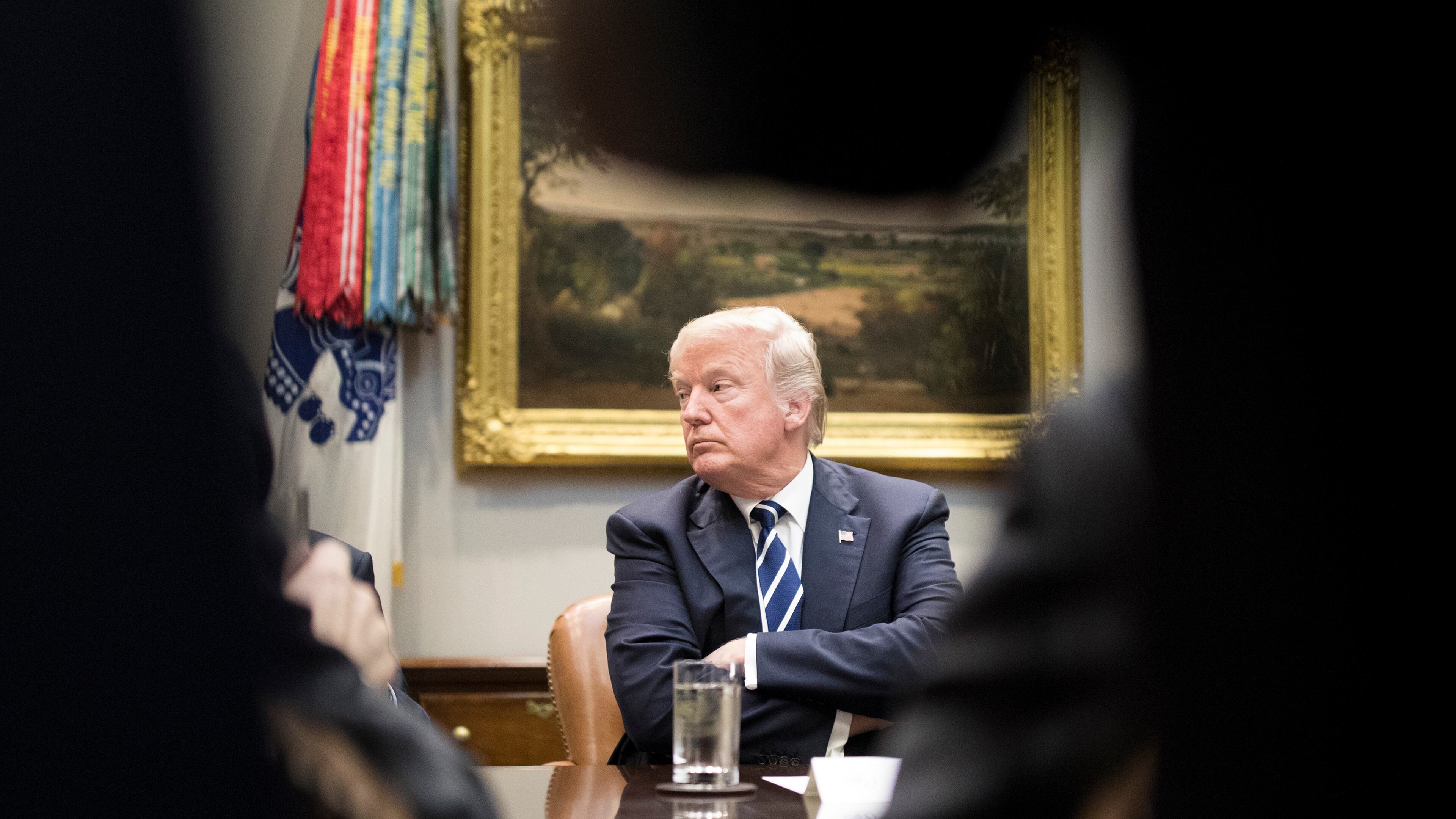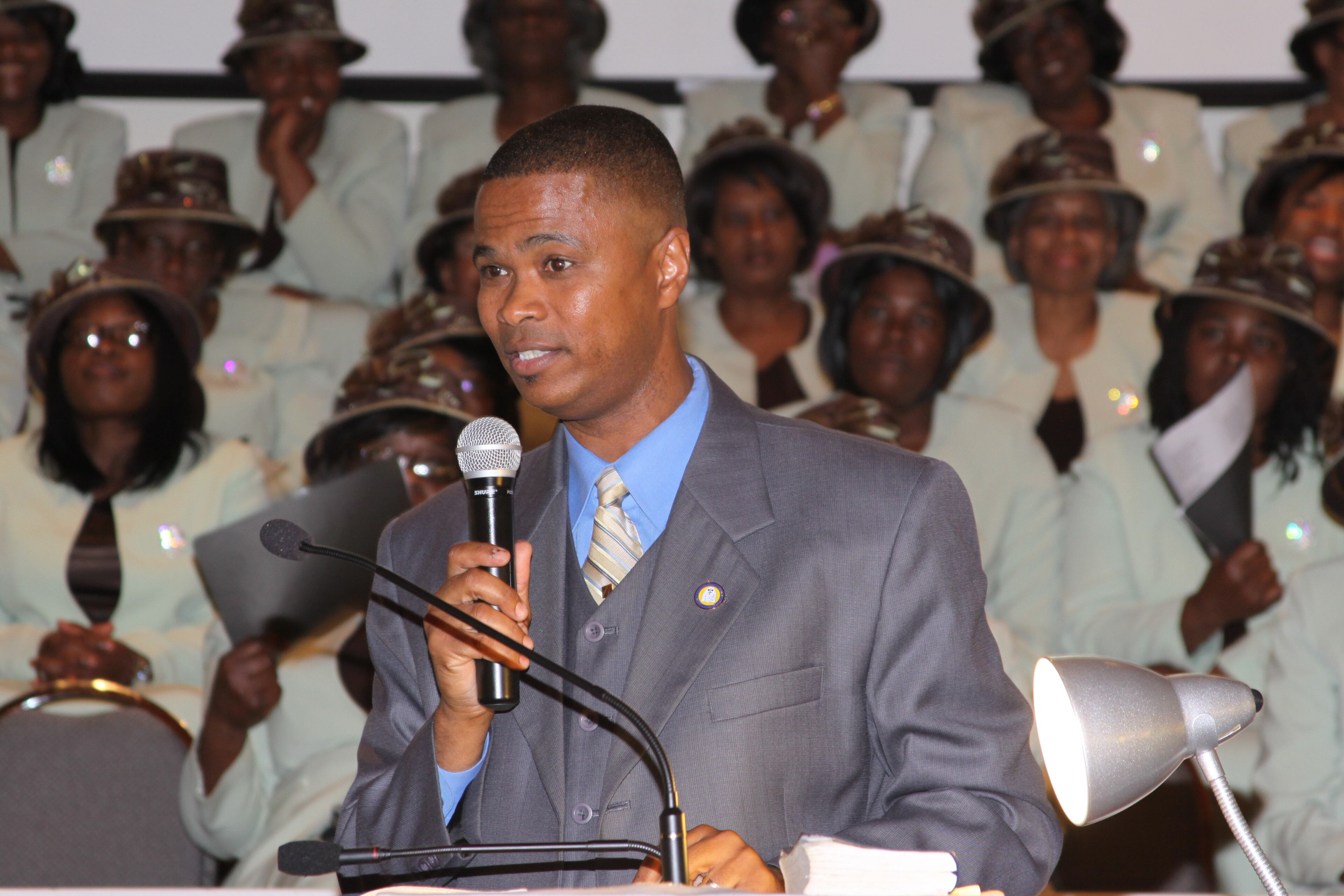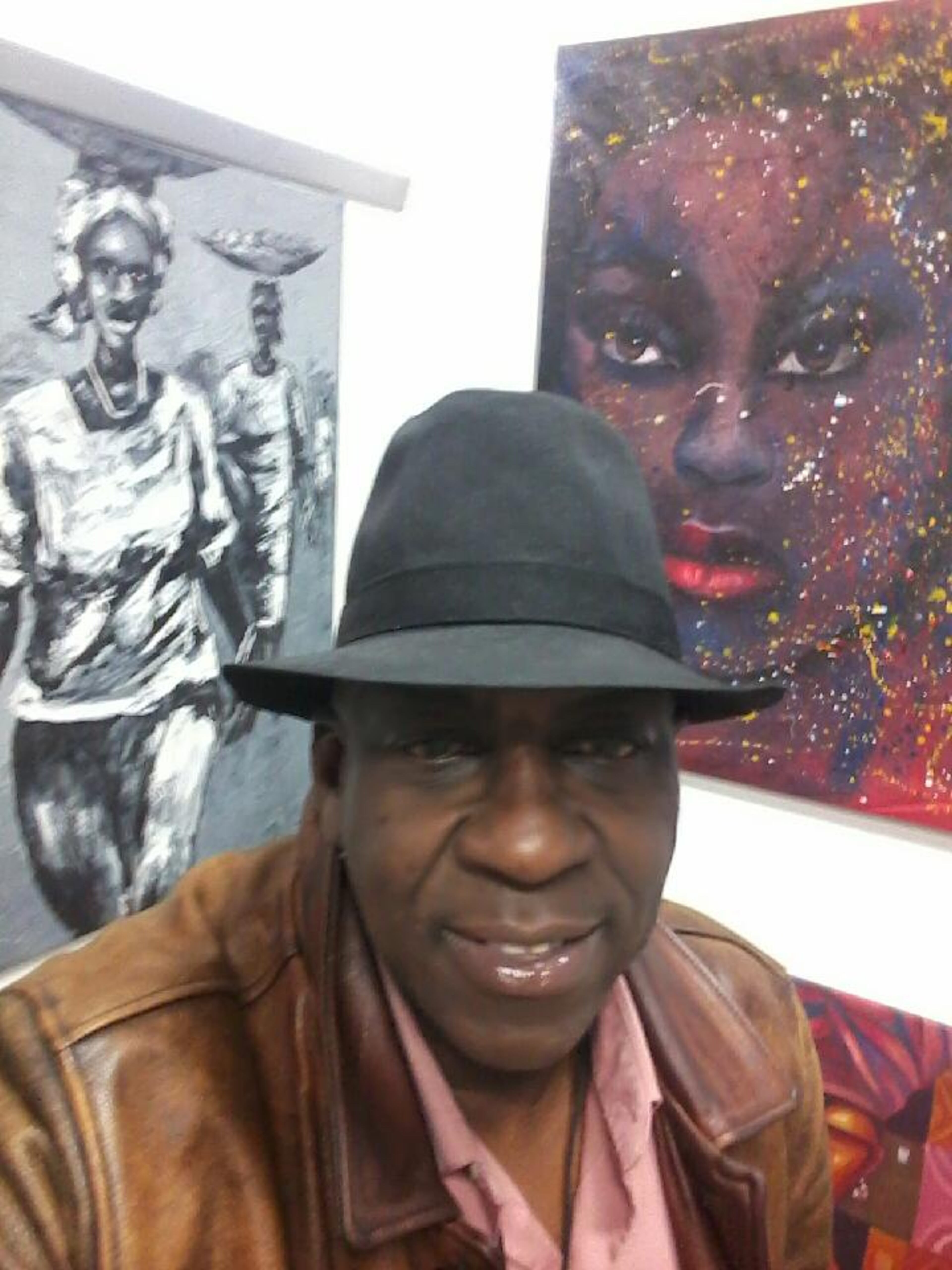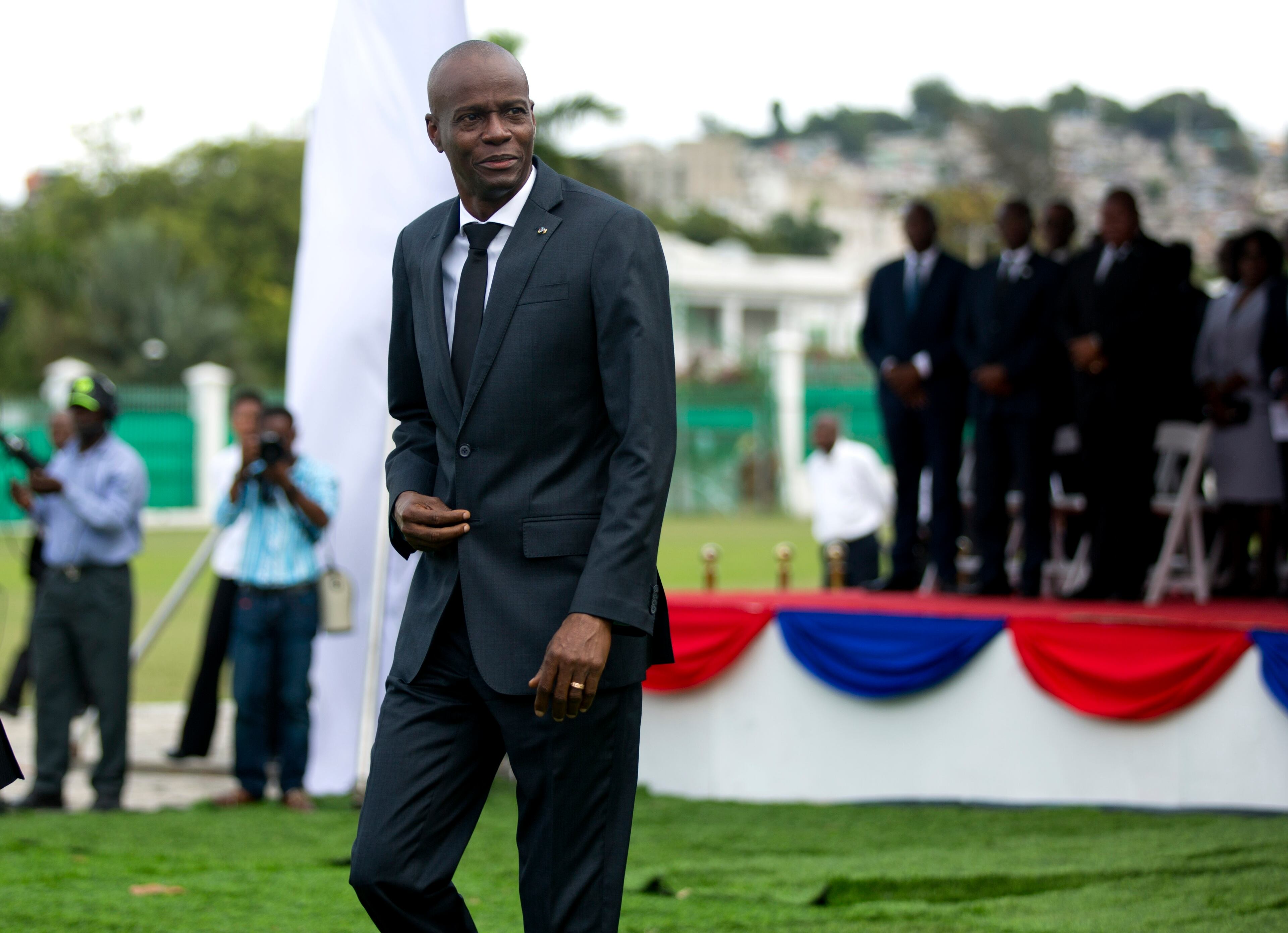‘This guy is a bigot,’ Atlanta immigrants say of Trump

Haitian and African immigrants across metro Atlanta reacted with fury and disgust Friday to President Donald Trump’s reported assertion that they come from “shithole countries.”
“I haven’t seen anyone so brazenly institutionalizing bigotry and racism,” said Leo Mulbah, former president of the Liberian Community of Georgia. “This guy is a bigot. I’m deeply troubled that he occupies an institution that promotes democracy and he is damaging that institution that other countries look to as a model.”
» GA. SENATOR IN MIDDLE: Perdue 'doesn't recall' Trump comments
» TRUMP RESPONDS: Says his language was 'tough,' denies vulgarity
Mulbah, who is in his 40s, came to the United States with his family in the early 1990s, when he was still in his teens. He went to college at Louisiana State University and became a U.S. citizen. He said Trump’s reported comments represent a willful ignorance about the educational demographics African immigrants.
“I am working on my Ph.d., and my friends who’ve come here are highly educated,” said Mulbah, whose father held a Ph.d. when the family arrived in the U.S. “Most of us have assimilated, raised our kids here and are contributing and doing well.”
President Trump’s remarks, first reported by the Washington Post, came to light Thursday as Trump railed against a proposed deal to extend the Deferred Action for Childhood Arrivals program (DACA). According to several lawmakers in the meeting Trump demanded to know why the country should accept immigrants from “shithole countries” rather than people from places like Norway. He added, “Why do we want people from Haiti here?”
On Friday, however, disagreement emerged that Trump had actually said those things.
Late in 2017, the White House also denied claims that Trump, who has been accused of making racist comments before, said all Nigerians lived in huts and all Haitians had AIDS.
“America is known as the land of opportunity,” said Billy Beaufils, the president of the Haitian Ministry Theophile Church in Christ in Atlanta, who came to the United States in 1989. “After I was done with my schooling in Haiti, the best place to come, use my mind and become the best that I could be was in the United States. So it is hurtful to hear the president of the United States say something like that about not just Haiti, but Africa as well.”

On Friday, Martine Elyse-Philippe, a 33-year-old Atlanta dance instructor whose parents were born in Haiti, was in the middle of choreographing her annual Haitian dance tribute for Black History Month. Her students bombarded her with questions that she spent most of rehearsal answering.
“It is disheartening to hear any leader of any nation speak down on your country,” Elyse-Philippe said.
Haiti, just 689 miles off the coast of Miami, gained its independence in a violent slave revolt against France in 1804, becoming the second-oldest independent nation in the Western Hemisphere. But in the centuries following, political corruption, the AIDS epidemic, natural disasters and American indifference have plunged Haiti into the depths of poverty. In 2015, more than 676,000 Haitian immigrants lived in the United States, including Elyse-Philippe’s parents. About 14,532 Haitians live in Georgia.
Critics have argued that Trump’s favoring immigrants from white European countries over those who are black and brown was unequivocally racist. Trump reportedly told the senators at Thursday’s meeting that more people from countries such as Norway should be allowed into the U.S., the implication being that Trump wanted more whites admitted than blacks. While Georgia is home to about 24,000 Nigerians, it only has 570 Norwegians.
» RELATED: Trump says no to proposed D.C. immigration deal
» AJC POLL: Trump's approval ratings in decline in Georgia

“Sure, some of our countries have challenges, but those are still our homes and places of pride for those of us who have origins there,” said Catherine Odera, the director of international student services at Dixie State University, and a former professor at Kennesaw State University.
She moved to the United States in 1999, after being educated in Kenya, to pursue her graduate studies.
“Calling our countries shitholes is inexcusable and should not be considered lightly. He offended a whole continent and a country rich in history, Haiti. I was deeply offended,” Odera said. “We are not here because we hate our countries. We are still tied to our countries, while enriching the United States as well.”
As president, Trump has not been to Africa on a state visit and his administration has not announced upcoming trips to the continent.

“He is basically a racist, and everybody knew that before he became president,” said Uche Ewo, an Atlanta fine arts dealer from Nigeria who has never lived in a hut. “Anything that is not Anglo-Saxon, he has a bias against. He has no knowledge of Africa. It just re-affirms what a lot of white people in America still think about black people around the world. It shows in the way the Justice Department treats black men. It shows in how America deals with Africa on trade. Now it is just more obvious and in your face more.”
Mulbah, the Liberian immigrant, said the president’s comments underscore a deeper concern.
“This is fear,” Mulbah said. “Black, brown and in-betweens are going to be the majority in this country in a few years. So we are hearing him acknowledge that fear of what is to come.”
Issac Settro, of Lawrenceville came to the U.S. in 1998, also from Liberia. He is now a U.S. citizen. He said he believes Trump’s comments demonstrate a lack of education and deep racial animus.
“I think he’s an ultra-racist and we’ve got to do everything we can to make sure this guy is not re-elected in 2020, because this man doesn’t understand what America is about,” Settro said. “He’s telling us he wants to defile America by pitting us against each other, but we’re not going to stand for it. We are going to send him packing.”
» HAITI UP CLOSE: Tracing a paradise lost
» DEPORTATION THREAT: Some Haitians flee to Canada, dividing families
Not everyone took pilloried the president over his comments.
Isaac Newton Farris Jr., a nephew of Martin Luther King Jr., told CNN Friday that Trump isn’t a classic racist.
"I think President Trump is racially ignorant and racially uninformed,” Farris said. “But I don't think he is a racist in the traditional sense."




